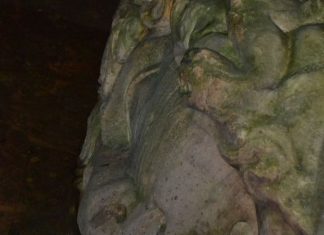For he decided such cases without full examination, naming the punishment when he had heard only the accuser’s side of the matter. Without hesitation he wrote decrees for the plundering of countries, sacking of cities, and slavery of whole nations, for no cause whatever. So that if one wished to take all the calamities which had befallen the Romans before this time and weigh them against his crimes, I think it would be found that more men had been murdered by this single man than in all previous history.
He had no scruples about appropriating other people’s property, and did not even think any excuse necessary, legal or illegal, for confiscating what did not belong to him. And when it was his, he was more than ready to squander it in insane display, or give it as an unnecessary bribe to the barbarians. In short, he neither held on to any money himself nor let anyone else keep any: as if his reason were not avarice, but jealousy of those who had riches. Driving all wealth from the country of the Romans in this manner, he became the cause of universal poverty.
Now this was the character of Justinian, so far as I can portray it.
As soon as Justinian came into power he turned everything upside down. Whatever had before been forbidden by law he now introduced into the government, while he revoked all established customs: as if he had been given the robes of an Emperor on the condition he would turn everything topsy-turvy.
Existing offices he abolished, and invented new ones for the management of public affairs. He did the same thing to the laws and to the regulations of the army; and his reason was not any improvement of justice or any advantage, but simply that everything might be new and named after himself And whatever was beyond his power to abolish, he renamed after himself anyway.
Property or the murder of men
Of the plundering of property or the murder of men, no weariness ever overtook him. As soon as he had looted all the houses of the wealthy, he looked around for others; meanwhile throwing away the spoils of his previous robberies in subsidies to barbarians or senseless building extravagances. And when he had ruined perhaps myriads in this mad looting, he immediately sat down to plan how he could do likewise to others in even greater number.
As the Romans were now at peace with all the world and he had no other means of satisfying his lust for slaughter, he set the barbarians all to fighting each other. And for no reason at all he sent for the Hun chieftains, and with idiotic magnanimity gave them large sums of money, alleging he did this to secure their friendship.
Read More about Foolishly thinking this the holier course of two evils








